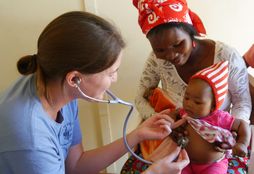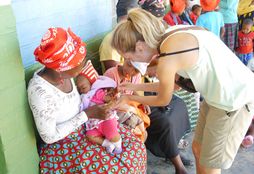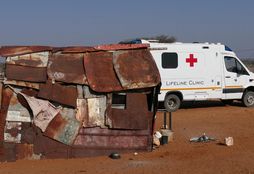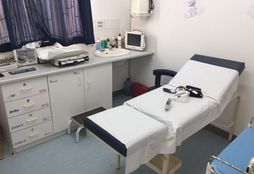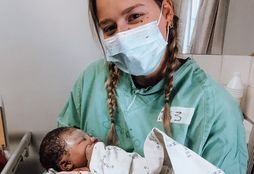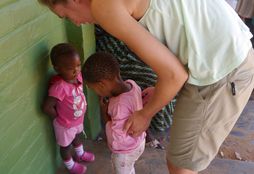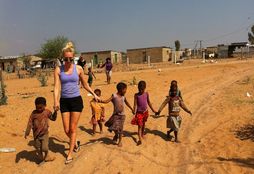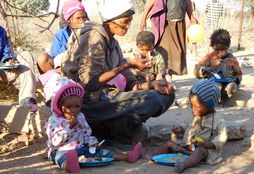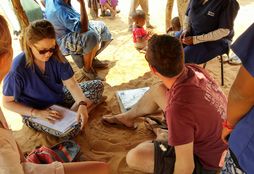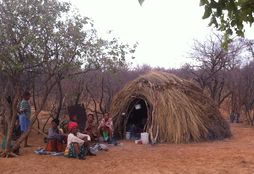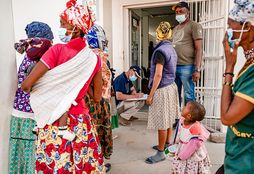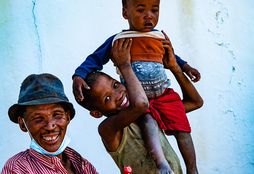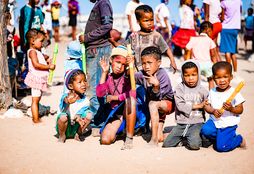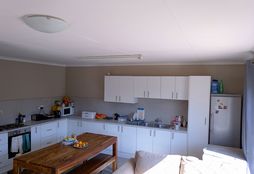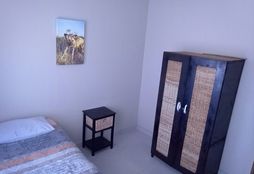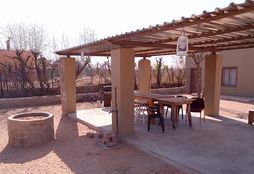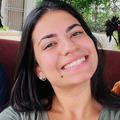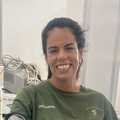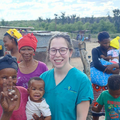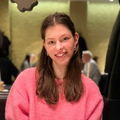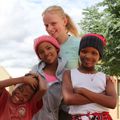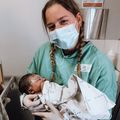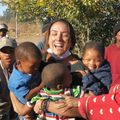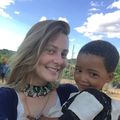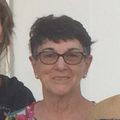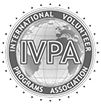Highlights
- Assist the doctors and the clinic nurse with the running of the clinic.
- Assist the teachers at the local primary school and adult education centre.
- Get involved in the agricultural project while helping to plant and harvest seasonal fruits and vegetables. This runs hand in hand with the nutritional support/feeding program providing a nutritious meal to around 120 community members twice a week.
- Work closely with the San community and make a real difference to a marginalised community.
- Visit the local state-run hospitals and clinics.
- Go on rural outreaches and experience how remote and isolated these communities are and how essential the services are to them.
- Experience the beauty of the African wilderness.
- Take part in excursions in Namibia: 3-day to 28-day tours are available at an extra cost. Tours may include visits to the amazing sand dunes in Sossusvlei, the coastal resort of Swakopmund and the Etosha National Park.
- Make new friends from all over the world.
- Exciting add-on projects available for combination.
Project Information
The clinic is dedicated to the health and welfare of the San Bushman community. The San, with their very ancient, rich culture, are traditionally hunter-gatherers. They have been forced from their original lands, which are increasingly being used for grazing cattle, leaving the San unable to carry on their traditional lifestyle. Bushmen are treated as third-class citizens and live in extreme poverty.
The project is committed to improving the lives of the San community through education, healthcare and improved living conditions. The project aims to give the next generation of this poverty-stricken community the education, healthcare and help they need to survive and to build a brighter, healthier future.
The medical team, with the support of San translators, treat around 3,500 patients every year. Approximately 40% are children and babies and more than 90% are San. As well as examining and treating patients at the clinic and at our outreach sites, we transport and admit patients in urgent need of medical attention to the nearest hospital 120km away. A large focus of the work is to tackle the tuberculosis burden within the San population.
Common diseases amongst child patients include fungal infections, intestinal worms, diarrhea, dehydration, malnutrition and mouth infections. By themselves, these infections and illnesses may not be particularly severe.
However, if left untreated, they will get much worse, leading to complications and in severe cases, even death.
In addition to working at the clinic, the team also runs regular outreach clinics at local schools, resettlement villages and farms.
A recently added Agricultural Project has started at the clinic, where the local San community is educated in growing their own vegetables to sell at local markets. It also involves the planting and harvesting of seasonal fruits and vegetables in a bid to make the clinic as self-sustainable as possible.
This also supplements the nutritional support/feeding program, a twice-weekly program that sees up to 120 community members receive a nutritionally rich meal. For so many, this is the only meal they can rely on.
A chapel was opened on clinic grounds in October 2022. This is also be utilised as a primary school and adult education centre. Volunteers can also be a part of the regular chapel services, mainly taking place on weekends. A primary school was established in the chapel on clinic grounds in 2023. It accommodates local children in Grades 0 to 4. Volunteers are also involved with assisting the teacher from time to time.
Your Role
You work alongside the clinic’s staff, is to learn about the common diseases affecting the local population and how to treat them. You work closely with patients from the local San community. Your training will be tailored to your skills, level, background and knowledge. Prospective medical students can expect to be trained in basic clinical skills, such as history-taking and patient examinations. Trained professionals are asked to conduct consultations with patients and to assist with outreach work. Trained professionals therefore have the opportunity to have a real impact on the people who are at most in need of help.
Your tasks depend on your experience and background.
Whatever your background/experience, you will assist with the daily duties of the clinic, which may include:
- Recording patient observations: blood pressure, heart rate, oxygen saturations, temperature.
- Observations: pregnancy tests and urine tests for patients and recording findings.
- Nutrition program: every second day, the elderly, mothers with babies and young children are fed.
- Weighing babies and keeping growth charts.
- Recording blood pressure.
- Glucose testing and recording.
- Basic wound cleaning and dressing.
- Help in the pharmacy: stock control, packing medicine and new orders.
- Family planning.
- Project data input.
- Sorting donated clothing and other items.
- Playing with the local children who attend the clinic.
- Preparing food packages for patients.
- Recording patient information and survey responses on outreach trips.
- General maintenance work in the clinic.
- Agricultural Project: cleaning of horticultural area, watering of seedings, pruning of plants, harvesting, packaging.
- IT, DIY, gardening, painting or anything an isolated clinic can use are highly valued.
Volunteers often have special skills that are invaluable to the clinic and we encourage you to use them and suggest new activities that you feel the project will benefit from.
It is important to note that this description serves as an example only. The daily tasks and challenges depend on the volunteer and the work that needs to be done. The final job description can therefore vary substantially from the above.
This project may be combined with one of our exciting add-on projects. add-on projects
Accommodation
You will stay in a volunteer house next door to the clinic. Depending on the number of volunteers, you may have your own room or may share with one other person of the same gender. Only a maximum of 8 volunteers can be accommodated at any given time so there is a house-share or family-type environment. The house has a kitchen, bathroom and living room; electricity and hot water are freely available. Volunteers are expected to help with the cleaning and cooking.
The doctors and nurses stay in a separate but adjoining building. However, they still share the communal areas with the volunteers, and are involved with the cooking and cleaning too.

